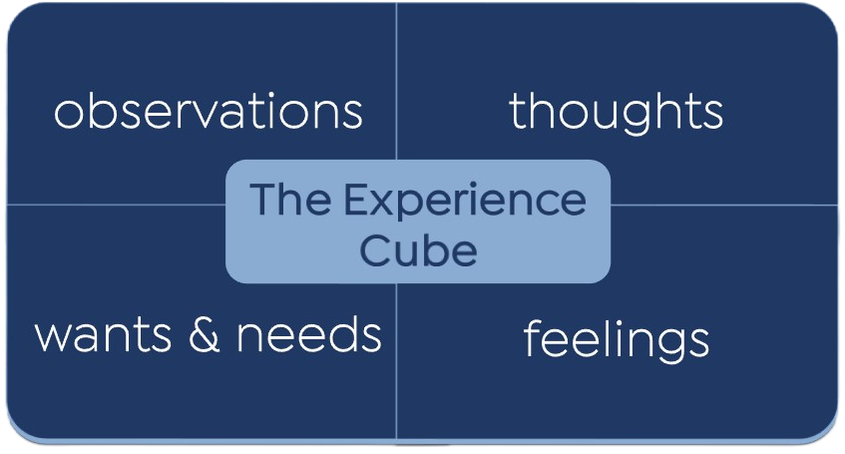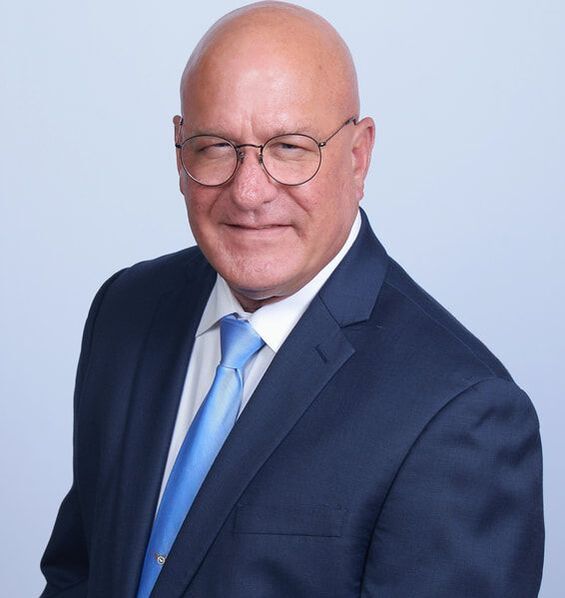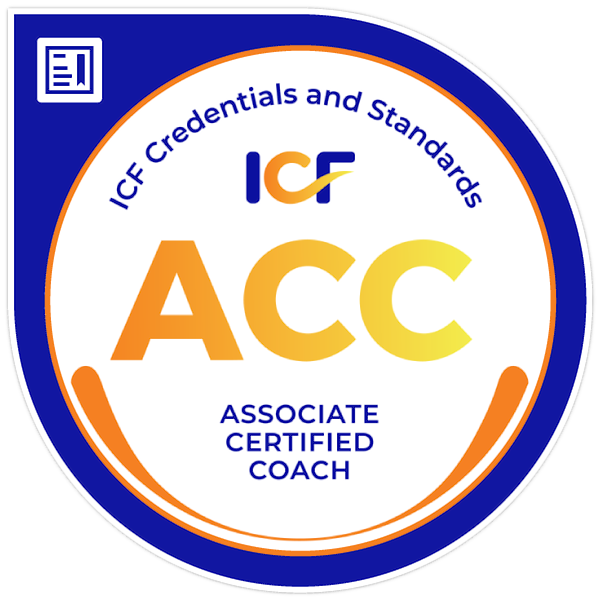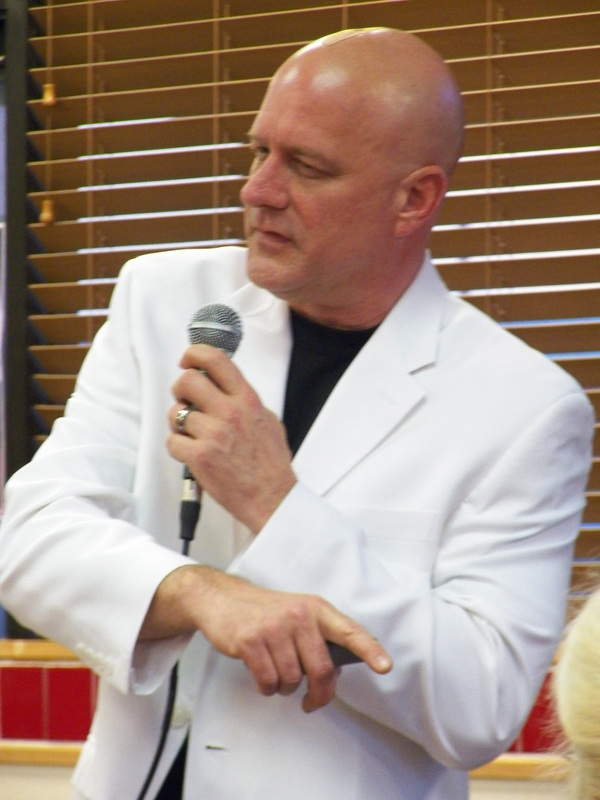THE ONE THING THAT MAY BE COMPROMISING YOUR TEAM CULTURE, YOUR INFLUENCE, & YOUR INTEGRITY2/20/2023 Once a story about a person or group gets created, it becomes difficult to dislodge. One big problem is that people forget they are operating from stories and come to believe their stories are “the truth.” GERVASE BUSHE  Every one of us has a deep need to make sense of ourselves, what's going on around us, and of each other. We need to make sense of the world—whether that's the wider world, our work environment, or at home. Stories But we have a funny way of going about that; especially when we try to make sense of what other people are doing and saying. We almost always create a story about it in our head—and we rarely go directly to the person we're trying to make sense of to check it out with them. We do go to others we trust, however. We share our experience and tell our story about it and they share theirs and add to the story. Add in a little confirmation bias and our story builds. And those you're trying to make sense of? They're creating their own stories about you and their experiences of you. Employees are making up stories about leaders and leaders are making up stories about employees. Teams make up stories about other teams. Customers and vendors make up their own stories, too. The worst part? We call it true. We call it the truth. In his book, Clear Leadership, Gervase Bushe calls this interpersonal mush. Hierarchies The negative effects from this phenomenon are amplified when power in a relationship is unbalanced. In other words, when one person has authority over another. Most of us learn very early on to take cover around authority figures. We try to learn what it is they want us to say and do and hide what we may be truly feeling and thinking so as not to upset the boss or make the boss angry. Positive spins on what's really going on and keeping things to ourselves (or maybe with trusted others) become a rampant, self-defeating behavior cycle. No one wants to displease the boss or fall out of their good graces. Our survival and prosperity seems to depend on it. And those in authority? Because of their authority and the assumption that their experience and their perception of it is true, bosses can easily impose that 'truth' on others inflicting even further damage. This inadvertently sabotages ourselves, our relationships, and our team culture. Left unchecked, it can at best be self-defeating behavior that negatively impacts engagement, productivity, innovation, authenticity, and so much more. When a leader imposes—intentionally, consciously or not—it puts at risk others' perceptions about the leader's integrity. At its worst, interpersonal mush plants the seeds for a psychologically unsafe environment. What can you do about it? Everyone is having a unique experience. First, recognize and acknowledge that everyone is having their own, unique experience. Ask ten different team members to describe what happened in the last staff meeting and you'll get ten different answers. Some of those descriptions may be more alike and others will be starkly different. But everyone's experience is uniquely their own and we each create our own experiences, whether we do that consciously or not. Until you recognize and acknowledge that everyone is having a different experience with the same event and develop a self-awareness of your own experience and the narrative-building that you do yourself, you cannot move past interpersonal mush. Model authentic vulnerability. Creating a safe environment where true authenticity, collaboration, healthy conflict, and innovation can take place must first be modeled and led by the leader. Learn to describe your experience, not your judgments. Gervase contends that experience is composed of four elements:
He calls it The Experience Cube. The ability to clearly and authentically share your own experience is key to improving relationships, patterns of interaction, and team culture. That is done by sharing your observations (facts that can be verified) coupled with your thoughts, feelings, and desires. We often confuse our thoughts—interpretations and judgments about an event—with observations or facts. Those who have taken Crucial Conversations may recall a similar strategy when we differentiate between facts and stories. Notice the difference:
Model curiosity. Because you know and recognize that everyone is having their own unique experience, a sense of curiosity about their experiences—and not judgment—is the next step. Teach others about the Experience Cube and invite them to share their experience, too. Do that without judgment or defensiveness. Park your reactions and listen. As Stephen Covey says, "Listen to understand." Gervase writes it this way: "Listen to their thoughts without trying to change their minds. Listen to their feelings without trying to make them feel better. Listen to their wants without feeling responsible for satisfying these wants for them." Model appreciation. Authentically thank people for sharing. That takes guts. You both now have greater clarity between you. Part of true appreciation is also noticing and recognizing the strengths, capabilities, and the goodness that others bring to the table. It also opens the space to recognize common values, vision, and purpose. Build intersubjective truth and solutions. When two or more people can authentically share their experience without judgment, there is an opportunity to build a co-created truth or an intersubjective truth. This type of truth is necessary for building collaboration, partnerships, a positive culture, and positive change. When I understand what you're experiencing and want and you understand what I'm experiencing and want, a safe space is created where we can now build a mutually supportive experience and work toward more meaningful and innovative solutions. Have an amazing journey today! Alan Mikolaj is a coach and leadership development consultant with 15+ years of experience. He is passionate about helping leaders transform their leadership, their teams, and their organizations. Impactful, professional approach driven by a passion for meaning and purpose, a growth mindset, and a commitment to excellence and service in order to drive change and results.
Alan maintains the ethics and standards of behavior established by the International Coaching Federation (ICF), including the standards regarding confidentiality. You can learn more about them on the ICF website.
0 Comments
Leave a Reply. |
Alan Mikolaj
Alan Mikolaj is a a professional, experienced, positive, and passionate speaker, leadership and organizational development consultant, change agent, author, and coach. He holds his Master of Arts degree in Clinical Psychology from Sam Houston State University. He is a certified graduate coach from Coaching Out of the Box and holds his ACC and membership with the International Coaching Federation (ICF). Free Discovery Conversation!
Impactful change starts with a conversation! Schedule your free, one-hour session by clicking here: Discovery Conversation with Alan
Or call or email: Contact Page In his third book, A Travel Guide to Leadership, Alan offers you simple, fundamental, and powerful lessons that have the power to transform you, your relationships, and your career.
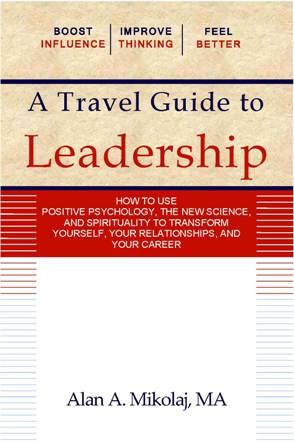
Blog Archives
July 2024

Linked2Leadership
Ranked #1 Business Blog! |
|
CONTACT
TEL: 346-291-0216 EMAIL: [email protected] SCHEDULE TIME WITH ALAN Free Discovery Conversation with Alan |


